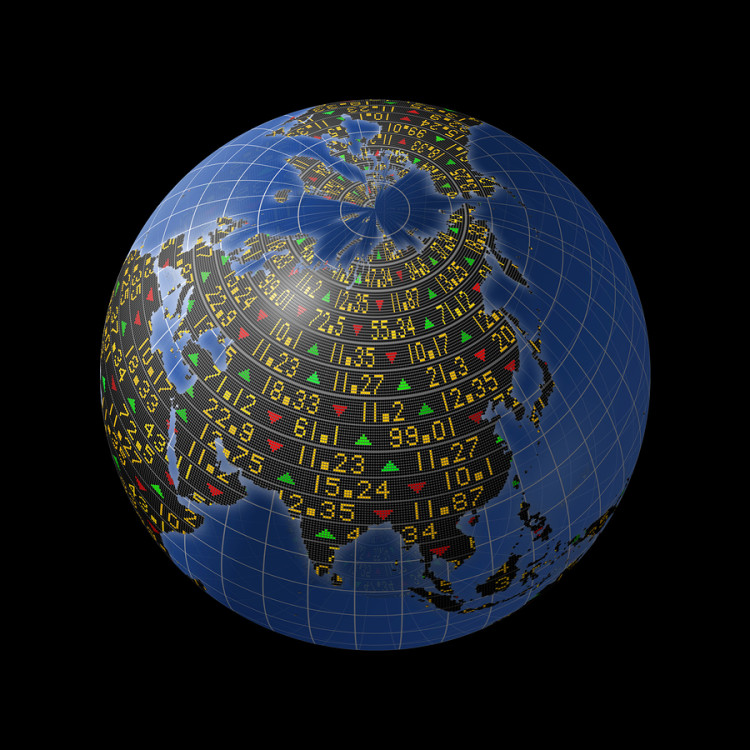Global Markets on Edge as Elections Thrust Politics Back to Fore

(Bloomberg) —For global financial markets, politics are back at the fore.
Look no further than the foreign exchange market, where the New Zealand kiwi and the euro were battered after weekend elections delivered unexpected results and the dollar surged as tension rose on the Korean peninsula. In the U.S., equity volatility surged as benchmark stock indexes slumped the most in two weeks.
For investors still rattled by the market lurches sparked by Brexit and the rise of Donald Trump, it was an unwelcome reminder that political certainty remains elusive at time when manifold catalysts remain on the calendar.
“2017 started off with an intense focus on politics and this is very likely how it will end,” write Deutsche Bank AG strategists led by George Saravelos. “Market outcomes are becoming increasingly binary and in our view it will be politics that determine how things go.”
Here’s a partial list of catalysts coming up and some strategies offered by money managers on how to navigate them.
Brexit talks have resumed following Theresa May’s speech in Florence last week. Japanese Prime Minister Shinzo Abe has called a snap election. China’s 19th Communist Party Congress looms next month. Independence referenda in Catalonia and Kurdistan are scheduled. The U.S. Congress is trying to reform the tax and health codes.The conundrum for investors is trying to find a way to set up a portfolio when assumptions on market fundamentals can be upended by unpredictable political outcomes. Some nimble managers are looking to seize upon opportunities caused by the uncertainty, or use any tremors as entry points to add to longer-term core holdings.
“It’s quite difficult to recommend a directional trade in these exchange rates,” said Commerzbank AG strategist Thu Lan Nguyen. “When it comes to political risk, the options market is a better way to trade.”
She sees an opportunity in euro-sterling implied volatility, which “may rise again as soon as we see some more tension in the negotiations particularly when it comes to the negotiations regarding the future relationship of the U.K. and EU.”
In the U.S., investors who’ve already seen bets on pro-growth fiscal policies dry up may be wise to steer clear of doubling down on them this fall, even as the White House makes a push to cut taxes on businesses.
“Investors are looking through the headline-risks and seem happy to chase economic fundamentals at the moment,” writes Alex Eventon, Head of Fixed Income at Dolfin . “Given how difficult they can be to predict, it has been inefficient to steer or set portfolio strategy based entirely on any one set of political events, so we have been using the low volatility environment to get protection against a very unfriendly market outcome materializing.”James Binny, head of currency portfolio management for EMEA at State Street Global Advisors, which manages $2.61 trillion in assets, says trying to trade around the political risk ahead makes him uneasy. So he’s using swing to add to long-term positioning — like those bullish the U.K. pound. He agreed that the best way to play the short-term mine fields ahead would be to buy currency options – which are cheap given low implied volatility.
“This all makes me quite nervous as you are sort of trading off the next headline, which is for the most part not predictable,” said Binny. “But these short-term distortions can be an opportunity for long-term investors.”
To be sure, some strategists retain high conviction in how the political calendar will inform the investment backdrop.
“We expect the Party Congress to reduce China’s political risk premium,” write Citi Private Bank strategists Ken Peng and Shirley Wong, whose investment committee maintains an overweight position in Chinese equities. “The key development in the next five years is likely to be a significant rise in China’s profile and presence in global financial markets.”
This is likely to foster inflows that provide support for domestic financial assets, according to the pair, who expect the yuan to strengthen below 6 per U.S. dollar in the next three years.







No Comment